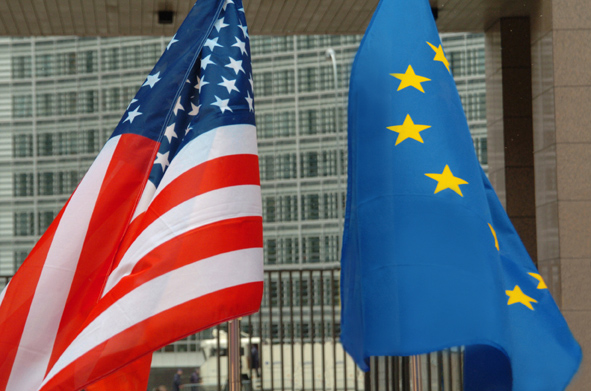
Despite perceptions here and in Europe that a G2 is emerging in which the United States and China will be international Goliaths largely oblivious to the world’s Davids, the fact of the matter is that “the United States and the EU together comprise 54 percent of global GDP.”
Moreover, “In 2008, U.S. EU investment into the United States totaled $1.4 trillion, or just over 60 percent of all foreign investment in the U.S. U.S. investment in the EU totaled $1.6 trillion, or 51 percent of U.S. investment abroad. That same year, U.S. investment in China totaled only $46 billion (one third of what the U.S. invests in Ireland, for example) and Chinese investment into the United States was only $1.2 billion.”
These facts were shared by Frances Burwell, vice president and director of the Atlantic Council’s Transatlantic Relations Program, in her testimony yesterday before the Subcommittee on European Affairs of the Senate Foreign Relations Committee.
She noted that while “China, and the other emerging economies, will undoubtedly become more important partners of the United States and Europe in the future. Their economies will evolve, and trade will become less significant as investment and services become a larger part of their portfolio. But as China adapts to WTO rules and as the BRICs take on a larger role in global economic management, the U.S. and EU would be best served by working closely together.”
Her recommendations for doing this effectively were outlined in great detail in “Resetting the Transatlantic Economic Council,” a joint publication of the Atlantic Council and the Bertelsmann Foundation released in October.
Among the most notable of these is the establishment of a “Barrier Free Transatlantic Market” which would begin by “eliminating all duties on traded industrial and agricultural products, as an important intermediate goal.” The report acknowledges that further steps will be “controversial and difficult; the remaining barriers persist precisely because they have been the most difficult to remove.” But the authors suggest practical steps to remove tariffs and market restrictions on a sector-by-sector basis, avoiding many of the pitfalls thathave blocked progress until now.
James Joyner is managing editor of the Atlantic Council.
Image: us-eu-cooperation.jpg
